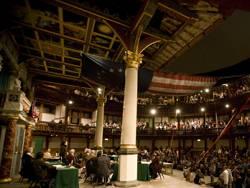We The People
After the colonists in America had obtained their independence from the empire-building Brits in 1783, they soon realised that things were not quite on track. The 13 individual states were pretty much going their own way - printing their own dosh, for example. In fact, it seems that the federal purse was more or less down to a few cents and a couple of moths, rather than the trillions it must have today. But power was also an important issue, and I suspect there were many who saw opportunities for advancement, and the ability to make themselves even richer and even more powerful too - but then I am, of course, a cynic of the first order.
'We The People' is about the convention held in Philadelphia between May and September 1787 where delegates from the states - The Founding Fathers - discussed the way forward for the union, attempting to thrash out a written constitution. The title of the play is the much-quoted opening of the preamble to the United States Constitution. If you look at a photograph of the original, those three words hit you straight away as they're in very large, hand-written script (no, they didn't have computers in those days).
As if the Globe's enormous stage wasn't enormous enough, an additional (and also very substantial) stage has been added in the yard in front of and slightly below the main one. This has been necessary because of the need to set up the meeting room which is the main feature of the set for about two thirds of the play.
The very first review I wrote was about a production of 'Romeo and Juliet' by the RSC. I thought the play was pretty good, but a student emailed me afterwards to say that he, his fellow students and his teacher all thought the play was 'seriously tedious' and questioned my grip on reality (I'm paraphrasing since the wording was actually a bit stronger!). Now I am not in the habit of plagiarising but ... 'We the People' does bring that phrase leaping back to mind almost in vivid 3D letters about a mile high.
The problem with documentary style historical plays is that although they have a genuine desire to communicate what actually happened, the fact is that what actually happened is that 50 white men gabbled on for hours at a time, then they voted, then they spoke for a few more hours, then they voted again ad nauseam for more than four long, dreary months. Now, of course, we have to see the workings of this meeting, but I am sure that there would have been a way (even using fictional material) to bring the subject to life. In effect, there just isn't enough fire, humour or genuine passion in any of the dialogue to really involve us. In fact, I would say I've heard better dialogue in the Law Courts in the Strand, and far more entertaining at that.
A spark of individuality is to be had in John Bett's Benjamin Franklin who injected some much -needed humour, though it was short-lived and countered with his immensely irritating knocking of his cane on the ground at regular intervals. Apparently Franklin was an avid inventor - some of his inventions such as the 'glass armonica' appear in the play. Thankfully, another of his inventions, the flexible urinary catheter, was not demonstrated on this occasion.
I've previously been terrified at the Globe when a real, live, actual snake was conjured up on stage. But here, director Charlotte Westena has gone one better (presumably as a cover before the real tedium begins) and contracted a real, live horse to bring one of the erstwhile politicians to the meeting. Still, it looked fairly friendly and calm, though I wondered at first if it was in the right play. It seemed to know its lines, though, voting as expected with the 'nays'.
I don't know whether the tourists have deserted London already - who could blame them given the appalling nature of this summer's watery weather - but Shakespeare's Globe is usually packed to the rafters, but not on this occasion. The audience seemed unusually thin, especially for a relatively warm and balmy evening. And there seemed even fewer of them after the interval - like some of the politicians on the stage, the real 'people' were obviously voting with their feet.
I don't blame the Globe for attempting to bring this monumentally important event to life because I'm sure that there's a good story there hankering to break out. But Eric Schlosser's script is just too drearily factual and repetitive to be even vaguely compelling. To complete the picture, I noticed my colleague (the Globe's number one fan!) dozing at frequent intervals, and I'm sure I detected the sound of a snore at the other side of our bay at one point. Still, the horse was good!
(Peter Brown)
Production photo by Johan Persson
Originally published on
